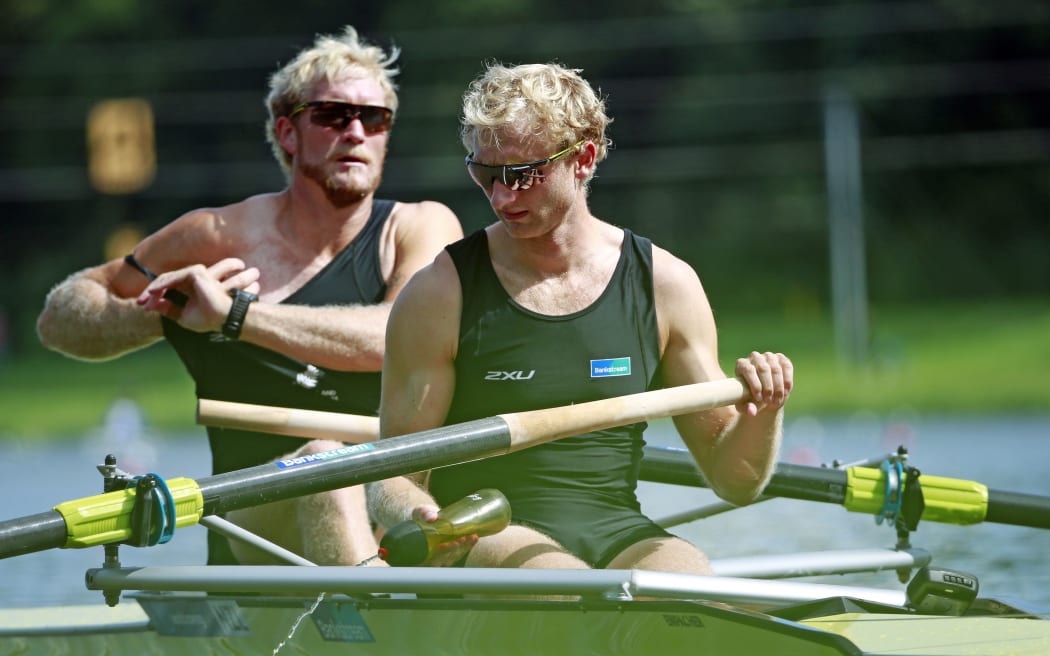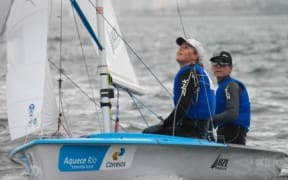Concerns that severe water pollution may have caused the death of thousands of fish at the rowing venue for next year's Rio Olympics is not an issue for the head of Rowing New Zealand's team. Yet.

2014 WORLD ROWING Championships. New Zealand's Hamish Bond and Eric Murray. Photo: PHOTOSPORT
More than 32 tonnes of fish were cleared from the Lagoa Rodrigo de Freitas in April and while some contend they were killed by a drop in water temperature, others suggest it was the pollution that proved fatal.
Rowing New Zealand's high performance manager Alan Cotter says they've been there a few times and yeah, it's not clean water, you wouldn't go swimming in it, but FISA, the governing body, are all over it.
The New Zealand team heads to Europe today for trainign and competition, which culminates in the world championships in France.
Cotter says if the world body had any concerns they would let them know, they're making sure that it's safe for all their athletes.
Cotter says the big issue with any possible pollution at the venue during the Olympics would be ensuring that even the most innocuous cut or scratch was treated by the team's medical staff to lessen the risk of infection.
Despite the concerns over the pollution, Cotter's preparations for Rio were well advanced with the team's 'day house' already established about two kilometres from the venue.
A day house was used at the Eton Dorney venue for the London Games, where New Zealand won three gold and two bronze medals, to give the rowers a chance to rest between training and races instead of going back to the athletes' village.
Two chefs will also be flown to Rio for the Games to provide the team with their own food.
Cotter says they're trying to replicate the set-up they had in London we are trying to replicate in Rio, they're trying to make it like New Zealand.
The logistics of getting the team from the athletes' village to the venue and day house will also be tested in August, when Rio hosts the junior world championships.
The senior team will also send 11 athletes and three coaches to Rio after their own world championships in August, to ensure the planning is on track.
Despite all the planning and monitoring of concerns over pollution, however, Cotter says what mattered most was how the athletes performed when they needed to next year.
He says in reality a course is a course, there's a start line and finish line, and it's still 2,000 metres long.


